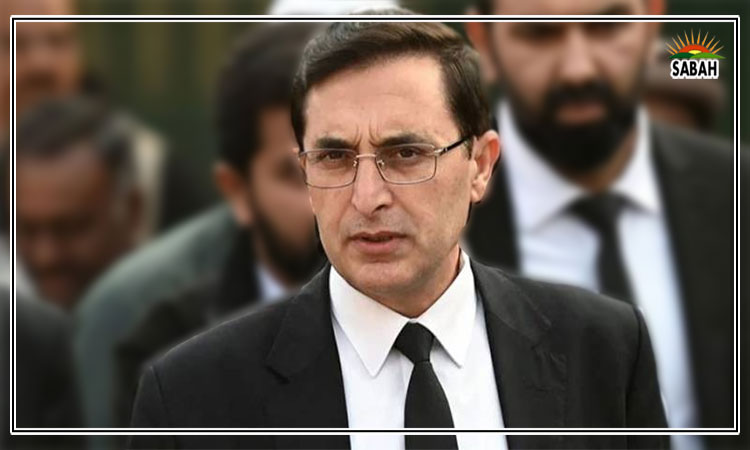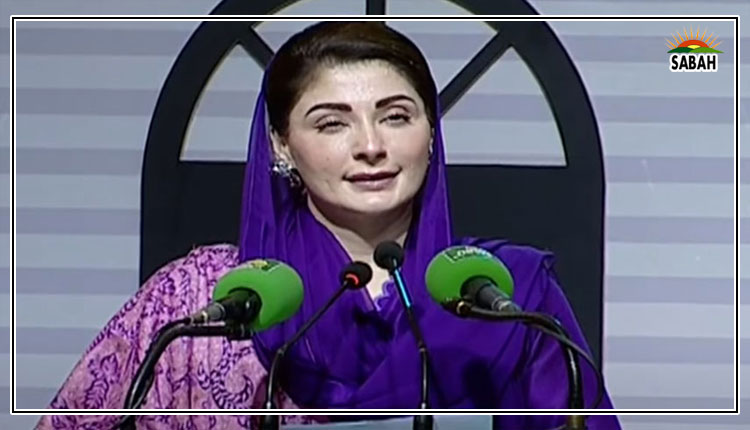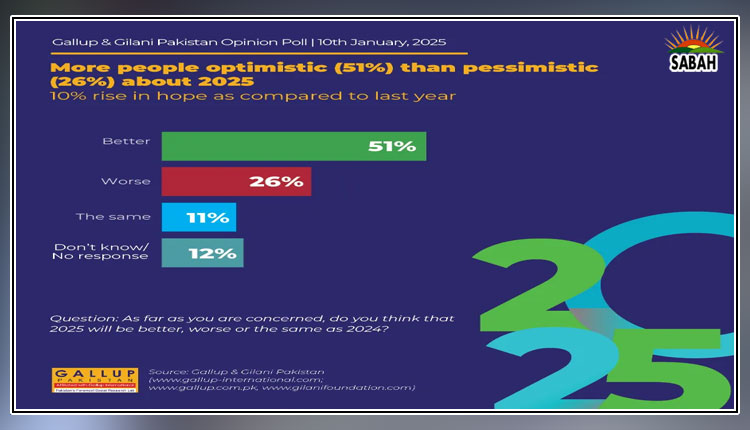Optimism about country’s direction nearly doubled in Q4 (19%) compared to Q3 (11%), reaching its highest level in 36 months: IPSOS GCCI
ISLAMABAD, Dec 10 (SABAH): Ipsos Global Consumer Confidence Index (GCCI) says the optimism about country’s direction has nearly doubled in Q4 (19%) compared to Q3 (11%), reaching its highest level in 36 months, with males and upper-and lower- income groups being most optimistic.
According to the survey conducted by a non-governmental organization, IPSOS, economic concerns have significantly eased in 2024 with inflation dropping by 16pp as top worry among Pakistanis, marking its lowest in 3.5 years.
According to the survey, Pakistanis describing the country’s state as strong has quadrupled since September 2023. Meanwhile, those perceiving it as weak have steadily declined by 9 pp from their peak in the same month.
Optimism about local economic conditions has also seen a positive shift of 20% in Q4, with 1 in 5 Pakistanis (19%) expecting improvements within the next six months – highest in one year.
Since last quarter, Pakistan has surpassed Türkiye in rankings for the first time in two years a positive change (1.2 pts) in Global Consumer Confidence Index.
Over 1000 people from all 4 provinces of Pakistan, ICT, GB & AJK took part in the survey. The survey was conducted between 11th to 30th November, 2024.
Ipsos Global Consumer Confidence Index (GCCI) is a national survey of consumer attitudes on the current and future state of the local economy, personal financial situation, as well as confidence to make large investments and ability to save. Consumer sentiment is a key predictor of purchase trends in the market. Despite it being a lagging indicator, if consumer confidence is high, people will make more purchases and the economy will expand. Businesses and Policy Makers can monitor changes in the index to factor the data in their decision-making processes. A wave-on-wave decreasing trend suggests consumers have a negative outlook on their ability to spend. Thus, manufacturers may expect consumers to avoid retail purchases, particularly items that require financing. Likewise, banks can anticipate a decrease in lending activity, mortgage applications, and credit card usage.












